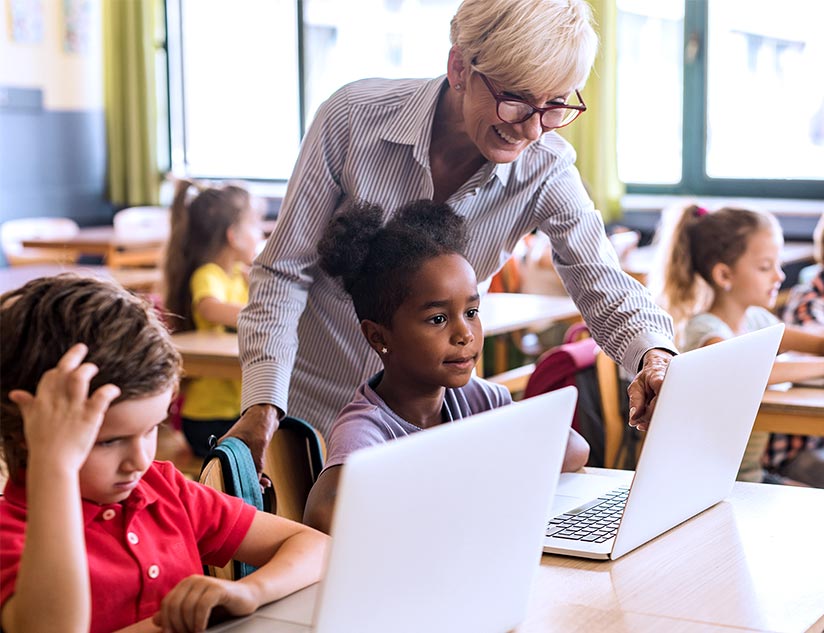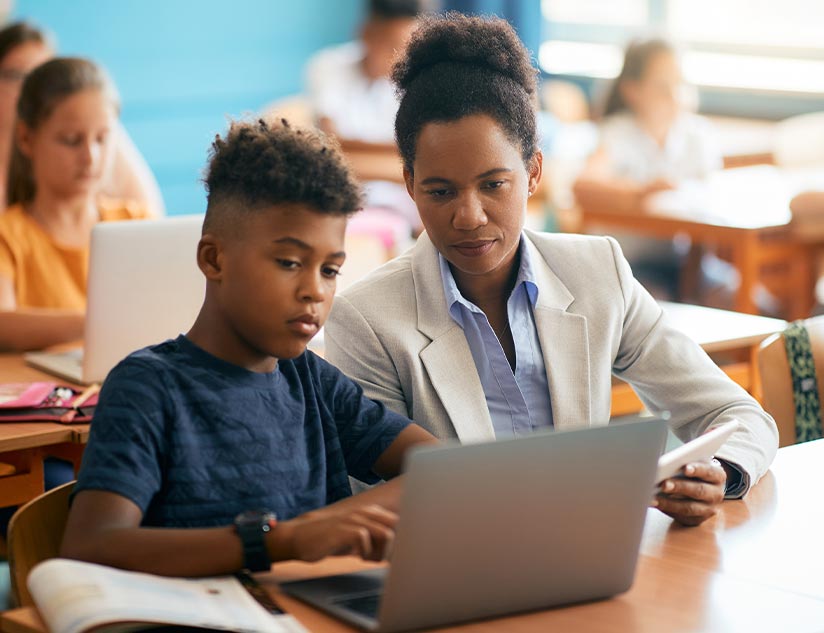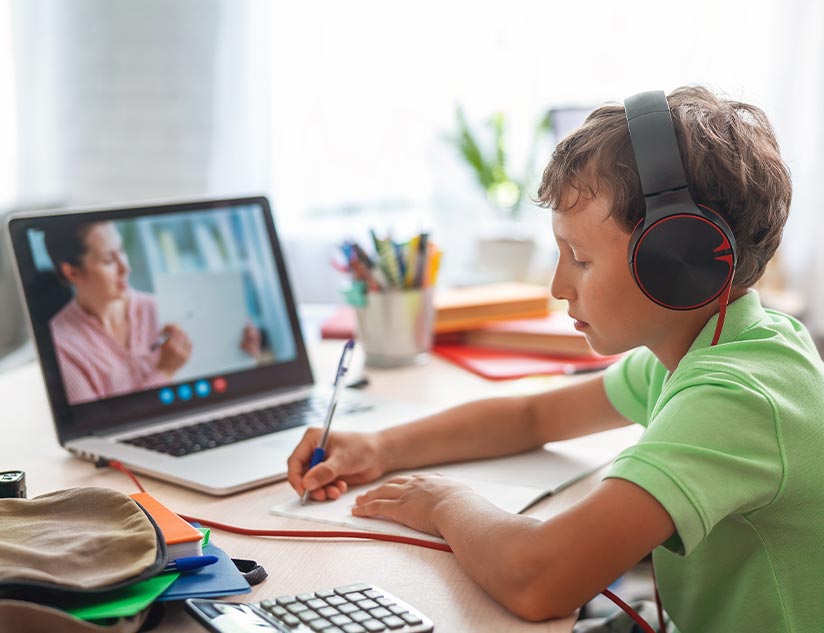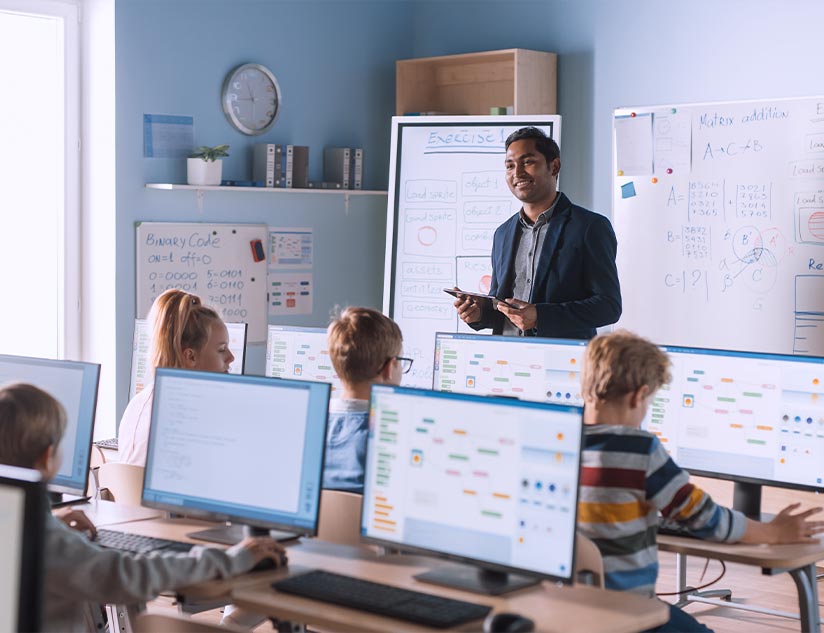How Professional Development of Teachers Maximizes the Value of Blended Learning in K12
July 2nd, 2024
Picture this – a student tries a simulated version of the chemistry experiment their teacher had forbidden the class from attempting in the lab because of its hazardous nature. End result? The simulated and gamified self-learning module allows the student to experience the experiment without exposing them to the associated risks. There’s a lot more that blended learning solutions can accomplish. No wonder the blended learning market is forecasted to reach $49.6 billion by 2032. However, the foremost requirement is to equip educators with the right skills to drive exceptional blended teaching and learning experiences across K12 and higher education levels.
Blended Learning: Shaping the Future of Digital Education
Blended learning combines traditional (classroom-based) and modern (self-paced, online, personalized) teaching-learning approaches. It is a tool for educators to offer immersive and interactive experiences using situations where real-life learning cannot be provided for some reason. Students can continue learning, revisit concepts, attempt quizzes to reinforce their learning, and even explore ahead. It fosters a sense of autonomy with opportunities for deeper understanding.
For those who cannot be physically present in a classroom, remote participation via real-time distance learning modes provides access to the same quality of education as students physically present in class. As digital learning penetrates deeper into the fabric of the global educational landscape, the demand for blended learning will only grow. To effectively leverage the latest learning model, educational institutions must prepare their teachers and equip them with the required tools and skills to deliver exceptional learning experiences.
The Role of Teachers in K-12 Blended Learning
As learning evolves, so will the role of teachers. In blended learning, teachers are not mere lecturers who deliver concepts and administer assignments. They have a more significant role to play.
- Facilitators of Learning
Students, especially those in K-12, need teachers to understand their learning journeys. Teachers encourage students to share the knowledge and skills acquired through digital modes. They also create problem-based opportunities to facilitate the application of the knowledge gained and encourage ownership using flipped learning.
- Technological Integration
Teachers assist students in exploring their LMS dashboards by actively integrating diverse learning tools within classroom settings. They introduce new features and demonstrate the optimal use of all available features of the online learning platform.
Challenges Faced by Teachers
While digital technologies and their demand in the online learning industry are expanding rapidly, teachers’ training remains an afterthought.
- Outdated Mindset
Present-day teachers have studied and have been educated in traditional classroom education. The one involving lecturing and administering tests according to a fixed schedule. This contradicts the paradigm of education where ongoing learning and continued assessment of skill and knowledge acquisition are prioritized.
- Black-Box Nature of Digital Learning Tools
Often, teachers are not involved in the process of digital transformation, which delays the development of desired levels of technological proficiency to execute blended eLearning solutions effectively.
- Adapting to New Pedagogies
Teachers unaware of the power and advantages of digital technologies often fear that it is a way to replace them. They must be educated about leveraging the tools available to enhance blended teaching and learning. Educational institutions must regularly conduct teacher-training programs to allow them to get hands-on experience of implementing digital pedagogies in the classroom.
- Ongoing Support
Digital pedagogical tools are evolving rapidly. EdTechs must provide teachers with ongoing support to stay updated with advances in blended eLearning solutions to adjust their pedagogy parallelly. Continued teacher improvement is crucial for many reasons:
- Teacher proficiency in teaching practices and subject knowledge has a direct impact on students’ academic performance and learning outcomes.
- Educators adept at using K-12 education technology boost student curiosity to perform similar activities. They make students feel comfortable with digital learning tools.
- Professional development bolsters teachers’ confidence and morale, which is increasingly critical with the global teacher shortage.
Effective Professional Development Strategies
In addition to teacher proficiency, the effectiveness of education relies on the teaching-learning process, managing and balancing classroom and remote learning and instructional design.
- Uninterrupted Support
The best way to equip teachers to meet the needs of the evolving educational landscape requires continuous institutional support for collaborative learning, fostering opportunities for sharing experiences and effective techniques.
- Hands-on Learning
Teachers must be provided with enough hands-on training and practical demonstrations to use K-12 education technology efficiently and confidently. This can eliminate apprehension and pave the way for the effortless integration of digital tools in blended teaching and learning.
- Access to Exceptional Tools
Online education publishers and edtechs must provide the highest-quality tools and training for teachers to empower them to utilize blended learning solutions adequately. The best ones include teacher training modules and notifying teachers of all updates in the toolkit. Additionally, these solutions include discussion forums and create opportunities for them to collaborate and share experiences and feedback about the efficacy and ease of use of the available solutions in a blended classroom.
EdTechs and educational institutions must plan to invest in the professional development of their teachers and the highest-quality, feature-rich blended eLearning solutions to differentiate themselves from the competition. Speak with the experts at MagicBox™ to learn how an AI-powered digital education platform equips you to train educators and stay ahead of the curve in the competitive digital education space.















